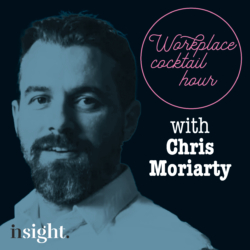To provide the best experiences, we use technologies like cookies to store and/or access device information. Consenting to these technologies will allow us to process data such as browsing behaviour or unique IDs on this site. Not consenting or withdrawing consent, may adversely affect certain features and functions.
The technical storage or access is strictly necessary for the legitimate purpose of enabling the use of a specific service explicitly requested by the subscriber or user, or for the sole purpose of carrying out the transmission of a communication over an electronic communications network.
The technical storage or access is necessary for the legitimate purpose of storing preferences that are not requested by the subscriber or user.
The technical storage or access that is used exclusively for statistical purposes.
The technical storage or access that is used exclusively for anonymous statistical purposes. Without a subpoena, voluntary compliance on the part of your Internet Service Provider, or additional records from a third party, information stored or retrieved for this purpose alone cannot usually be used to identify you.
The technical storage or access is required to create user profiles to send advertising, or to track the user on a website or across several websites for similar marketing purposes.
 Lawyers progress through four distinct emotional stages in their fight to get to the top and secure a coveted partnership role, according to new research from the University of Bath’s School of Management. The study of UK legal professionals showed they progressed from excitement and anticipation at the start of their career, followed by fear and anxiety as they pursue promotion, to pride and joy at having secured a senior post, and finally experiencing disillusionment and disappointment at the lack of further change. (more…)
Lawyers progress through four distinct emotional stages in their fight to get to the top and secure a coveted partnership role, according to new research from the University of Bath’s School of Management. The study of UK legal professionals showed they progressed from excitement and anticipation at the start of their career, followed by fear and anxiety as they pursue promotion, to pride and joy at having secured a senior post, and finally experiencing disillusionment and disappointment at the lack of further change. (more…)

















 In the first of a new series of news-based podcasts, I catch up with Chris Moriarty, the co-founder of Audiem and much besides. Over a glass of gin and tonic, we discuss the AI Safety Summit and the proclamations of imminent doom that came before and after it. We also talk about the covid inquiry and the toxic workplace culture it exposed as an intriguing subplot.
In the first of a new series of news-based podcasts, I catch up with Chris Moriarty, the co-founder of Audiem and much besides. Over a glass of gin and tonic, we discuss the AI Safety Summit and the proclamations of imminent doom that came before and after it. We also talk about the covid inquiry and the toxic workplace culture it exposed as an intriguing subplot. 
 A new poll of workplace leaders suggests there is an environment of unconscious fear in modern-day leadership, leading to toxic culture, stunted growth, performance and productivity, and decision inertia. The global study of 2,500 emerging leaders in corporate businesses by consultant
A new poll of workplace leaders suggests there is an environment of unconscious fear in modern-day leadership, leading to toxic culture, stunted growth, performance and productivity, and decision inertia. The global study of 2,500 emerging leaders in corporate businesses by consultant 






 Less than one-third of employees report they are engaged, enthusiastic and energised by their work, according to a new report from Gartner. The survey was showcased during the Gartner ReimagineHR Conference, which took place this week. Gartner defines engagement in three ways: employees feeling energised; employees finding purpose in their work; employees feeling empowered to do valuable work.
Less than one-third of employees report they are engaged, enthusiastic and energised by their work, according to a new report from Gartner. The survey was showcased during the Gartner ReimagineHR Conference, which took place this week. Gartner defines engagement in three ways: employees feeling energised; employees finding purpose in their work; employees feeling empowered to do valuable work. 







